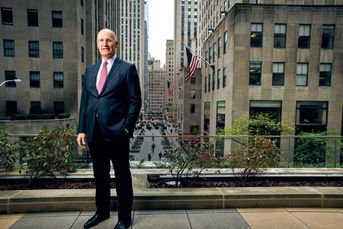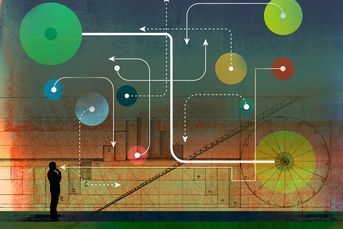IN’s Cooper: Why I’m looking forward to deflation
Forget the doom and gloom -- plenty of good can come from falling prices
In the inflation vs. deflation debate, it’s pretty clear that deflation is winning. The Fed has had its liquidity foot to the floor for some time now, and instead of our economic engine revving up, the tachometer has barely budged.
So whether we’re facing a Japanese-style lost decade or an updated version of our own Depression, it seems as if we’re in for an extended period of unpleasantness, as Lord Keynes might have put it.
But don’t despair. Deflation doesn’t just mean bread lines, soup kitchens and the rise of maniacs with mustaches. There can be much to love about an oomph-less economy. Here are five reasons to look forward to the doldrums:
More innovation. Necessity is said to be the mother of invention. But idleness and low interest rates don’t hurt either. Lots of the technological advances that became widespread in the 1950s — automatic transmissions in automobiles, automatic washing machines, jet engines and television — actually were invented or refined in the 1930s. When 5% is considered a fantastic return on investment, there’s lots of incentive for tinkerers to come up with something that can make more money than that.
More luxury. Not that we don’t lavish enough attention and praise on the super-wealthy already, but if they’re the only ones with significant money to spend, you’ll see a lot of effort devoted to products and services aimed at them. Eventually, the fancy stuff bought by the über-rich trickles down to us common folk in less fancy form, at lower prices. But since the big shots don’t mind spending a lot of money on new, exclusive stuff — it gives them a kick to buy things we peasants can’t — they will subsidize the development of new products the rest of us will find at Costco in 2022. Think FM radio. It became available commercially in 1939. When did your family get an FM player?
Renewed emphasis on education. I’m not 100% sure about this, but I’m hopeful. The dismal performance of our educational establishment over the past 20 years and the relentless message that the jobs of the future will require us to know more science and math, could slow down our nation’s march into ignorance. If we’re lucky, being intelligent and becoming a disciplined student may even stop being a stigma among great swathes of the public and could even become admired. If it comes down to a choice between working in school or going hungry, maybe we’ll come to respect education again.
Better entertainment. Look what good times have brought us: Lindsay Lohan, Lil’ Kim and “Big Brother.” Compare that to Busby Berkeley musicals, Frank Capra movies and “The Thin Man.” Maybe because bad times increase the desire for escapism, demand for entertainment is likely to rise. In addition to the ocean of drivel we swim in now, we’re likely to see new, more-literate entertainment options emerge as costs decline and the hurdle to profitability drops.
Less waste. You don’t have to be Al Gore or even like him to recognize that most of us give little thought to our wasteful behaviors. In the past, the cost of driving around aimlessly, not giving a second thought about the use of disposables, and heating or cooling and illuminating ourselves indiscriminately wasn’t a concern. When you’re poorer, such things count. And during deflation, when things are more expensive in real terms, you watch the little stuff and try not to waste much. Maybe we won’t turn into our frugal great-grandparents, but if we can save money by carrying our own shopping bags, why not?
Learn more about reprints and licensing for this article.







